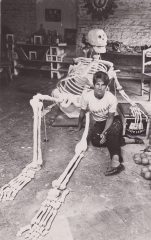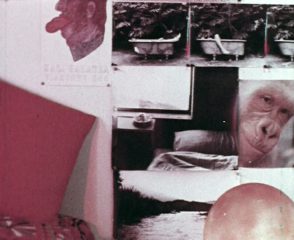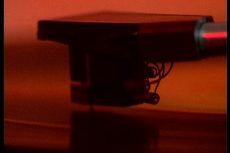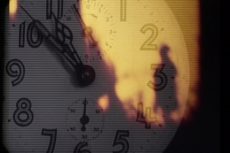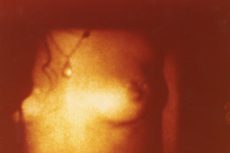“A Cinematic Aleph: The Films of Narcisa Hirsch”, curated by Federico Windhausen. June 13-15, 2013
A Cinematic Aleph: the Films of Narcisa Hirsch
Curated by Federico Windhausen
“Born in Germany in 1928 and resident in Argentina since her early childhood, Narcisa Hirsch is a pivotal figure in Latin American experimental cinema. Moving into filmmaking in the late sixties following her earlier work in painting, performances and happenings, Hirsch focuses on the body and corporeal experience in her work, and combines her musings on spiritual and existential questions with lyrical imagery derived largely from the interior spaces of her domestic life, the rural landscapes of Patagonia and the urban environments of Buenos Aires.
While her artistic biography has intersected with such art- and film-cultural milestones as the happenings at the di Tella Institute in Buenos Aires and the early years of Anthology Film Archives, Hirsch has resolutely sought to follow her own course, mostly avoiding strong institutional affiliations and seeking to engage with artists and thinkers on her own terms. Despite this strong-willed individualism, however, she still views filmmaking as a profoundly social and collaborative practice, having contributed extensively to the formation and development of Argentina’s experimental film and video scene since her early collaborations with an informal, loosely knit collective that included such key filmmakers as Claudio Caldini, Marie Louise Alemann, Juan José Mugni and Horacio Vallereggio.
This special two-night retrospective begins with an onstage conversation between Hirsch and Michael Snow, whose work provided a unique point of connection with Hirsch’s own practice in the 1970s. On the second night, Hirsch introduces and discusses a selection of her work spanning four decades, including a new 35mm transfer of the 16mm-shot Come Out.“—Federico Windhausen
The Imagined Film: A Dialogue Between Michael Snow and Narcisa Hirsch
“In the mid-seventies, Narcisa Hirsch heard about Michael Snow’s 1970 film A Casing Shelved, which combines a projection of a 35mm slide showing a bookcase in Snow’s studio with a tape-recorded narration by the artist that discusses various objects within the image. Not only addressing viewers directly, Snow’s narration attempts to direct our eyes toward specific portions of the image, as if spectatorial vision could function in a manner analogous to camera vision. Notwithstanding her inability to see Snow’s film, Hirsch made Taller (Workshop), a 16mm film inspired by the little she knew about A Casing Shelved. Though Hirsch’s film, like its unseen model, is shot in the artist’s studio and dominated by her voice, it departs in thought-provoking ways from Snow’s work. At this screening, Hirsch and Snow will see each other’s films for the first time and have a conversation about this singular case of a belated, cross- hemispheric dialogue between two experimental filmmakers.”—Federico Windhausen
A Casing Shelved dir. Michael Snow | Canada 1970 | 45 min. | 35mm slide and audio tape
Taller (Workshop) dir. Narcisa Hirsch | Argentina 1975 | 11 min. | 16mm
Narcisa Hirsch, Michael Snow and Federico Windhausen in person.
Thursday, June 13 6:30 pm
- Come Out
- El Aleph
- Ama-Zona
Filmic Passages
“On the second night of our retrospective, Narcisa Hirsch introduces and discusses a diverse selection of her short work. Shot and edited by Raymundo Gleyzer, who would later become a major Latin American documentary filmmaker, Marabunta captures a unique happening staged by Hirsch at the Coliseo cinema in October 1967, after a screening of Antonioni’s Blow-Up. Hirsch’s interest in performance informs her lively deployment of machine-based technologies in Come Out, a film that has thus far been left out of the history of experimental work influenced by minimalist music and structural cinema. Testamento y vida interior also includes a performance, one in which Hirsch’s fellow filmmakers carry a coffin through the streets of Buenos Aires—an action all the more striking for having been accomplished at the outset of Argentina’s “Dirty War.” In Ama-Zona and A Dios, sparse meditations on female independence, eroticism, violence, and mortality are threaded through lyrical depictions of various spaces—urban and rural, domestic and public—with an eye attuned to the nuances of light, colour, and shadow. The programme ends with a nod to Borges in El Aleph, a lively summing-up, and an affirmation of a life lived through and with the cinema.”—Federico Windhausen
Marabunta dir. Raymundo Gleyzer | Argentina 1967 | 7 min. | 16mm
Ama-Zona dir. Narcisa Hirsch | Argentina 1983/2001 | 11 min. | Super 8 re-edited on video
Testamento y vida interior dir. Narcisa Hirsch | Argentina 1976 | 11 min. | Super 8 on video
A Dios dir. Narcisa Hirsch | Argentina 1989 | 22 min. | Super 8 on video
Come Out dir. Narcisa Hirsch | Argentina 1970 | 12 min. | 16mm blown up to 35mm
El Aleph dir. Narcisa Hirsch | Argentina 2005 | 1 min. | video
Narcisa Hirsch and Federico Windhausen in person.
Saturday, June 15, 2013 2:15 pm
